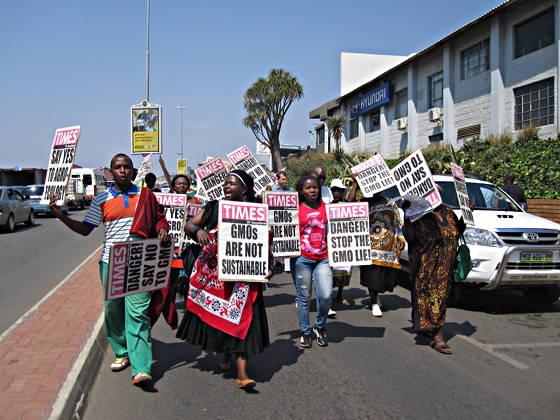Latest Resources

2 August 2024
The decline of FISPs in Malawi – debt, corruption and hunger
What future for smallholder farmers and realising agroecology?

29 May 2019
ACB’s Commentary on An Africa-Europe Agenda for Rural Transformation: Report by the Task Force Ru...
The European Union (EU) is in the process of defining a new set of priorities in the African agricultural and food sectors, through the proposed implementation of the EU-Africa Alliance for Sustainable Investment and Jobs. Their Task Force for Rural Africa published a report with draft recommendations, which is oriented towards promoting the capitalist transformation […]

30 April 2019
Oxitec’s failed GM mosquito releases worldwide: Forewarnings for Africa and the Target Malaria pr...
A decade ago, genetically modified (GM) mosquitoes were first released globally, in the Cayman Islands, by UK-based company Oxitec. Further releases followed in Malaysia, Panama and Brazil. In a public relations whitewash, Oxitec has repeatedly claimed that the experiments successfully wiped out nearly 90% of the Aedes aegypti mosquito population, which is one of the […]

26 April 2019
Undermining farmers’ rights and seed systems: Why the EAC seed and plant varieties bill must be d...
In this vlog, African Centre for Biodiversity’s (ACB’s) Sabrina Masinjila, based in Tanzania, speaks about the East African Community Seed and Plant Varieties Bill, 2018 and some of the concerns related to the Bill, as more fully set out in a detailed report and summary. As described in the vlog and our detailed report, Concerns […]

28 March 2019
Cyclone Idai’s warning – Shift to agroecological systems that work with nature or suffer more dev...
Ranked as one of the worst tropical storms on record to hit Africa, Cyclone Idai made landfall in Beira on Thursday 15 March, before lacerating its way across central Mozambique and then on towards neighbouring Malawi and Zimbabwe. Heavy rains, flooding and storm damage has resulted in devastation on a vast scale. It is estimated […]

10 September 2018
Report from SADC regional farmer speak out on farm input subsidy programmes
Rural Women’s Assembly (RWA) and African Centre for Biodiversity (ACB) jointly hosted a meeting of farmers and civil society organisations (CSOs) in August 2018 to share views and experiences on farm input subsidy programmes (FISPs) and public sector support for agroecology in the region. About 140 participants from Namibia, South Africa, Zimbabwe, Mozambique, Zambia, Malawi, […]

28 May 2018
Biosafety Indaba eSwatini: Unclear motives following approval to cultivate Bt cotton, despite dis...
The news that the Swaziland Environmental Authority (SEA) had authorised the importation and commercial release of Bt cotton seeds came as a huge shock to the African Centre for Biodiversity (ACB). It meant that ACB had to reconsider its earlier acceptance of an invitation by SEA to attend a National Biosafety Indaba on 22 May […]

18 October 2017
The GMO crisis in Swaziland
Swaziland is under enormous pressure to introduce genetically modified organisms (GMOs) into the country’s farming system. This pressure is coming not only from Monsanto but also from farmers and some sections of the public who have been fed a great deal of misinformation and hype by the pro-biotech machinery. The farmers, acting on incomplete and […]

18 July 2017
GM Cotton push in Swaziland: Next target for failed Bt cotton
This paper examines the application of the Bt cotton field trials currently underway in Swaziland. This is situated within the broader wave of GM application and trials across the continent, along with the weakening of national biosafety regulations, as part of the GM push across Africa. This paper is based on research on the Swaziland […]

25 April 2017
Objection to commercial release of MON87460 X NK603 X MON89034 (triple stacked involving drought ...
In this objection, ACB raises numerous concerns with the application by Monsanto for the commercial release of the triple stacked event. Drought tolerance is a highly complex genetic trait that cannot be addressed by single gene insertions, as shown by the lack of data backing up the applicant’s claim that this GM variety shows “improvements […]
